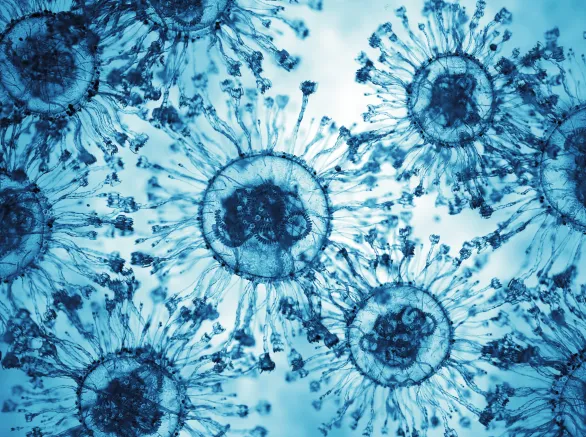June 5, 2020
Genetic methods are increasingly being researched and applied to monitor sewage for SARS-CoV-2 — the novel coronavirus that causes COVID-19. These methods involve extracting genetic material from sewage samples to determine whether the virus is present. This approach allows scientists to gather community-level information about the occurrence of the virus to supplement clinical testing. These methods are being employed around the world, and their use is currently being expanded in the United States. Researchers are interested in using viral abundance data from sewage to estimate the number of cases in a population, but this application has remained a challenge due to various sources of uncertainty. These methods appear promising, however, for examining trends in cases over time and could provide early-warning detection for the re-emergence of the virus in communities.
Similar approaches, collectively termed "sewage epidemiology," have been used previously to evaluate public health at the population level. In the past decade, researchers have used genetic tests to look for other disease-causing, or pathogenic, microbes in sewage, such as the polio virus or Salmonella bacteria. Researchers have also measured prescription and illicit drugs in wastewater to look for trends in usage within populations. The information gathered has been used to design public health campaigns.
Genetic and chemical methods have been used more broadly to monitor human and animal waste, such as tracing sources of fecal wastes in the environment. Human and animal waste can contaminate natural waters, for example, if sewers leak or rainfall runoff flushes pet or livestock waste into streams. Fecal waste that makes its way into drinking water sources or swimming beaches poses a risk to public health and can result in beach and fishing closures. Monitoring for genetic material or human sewage indicators such as caffeine can help identify sources of waste — e.g., human, cattle, gull, dog — to impaired waters. Knowing the source of waste is useful for assessing human health risks and designing remediation strategies.
How Exponent Can Help
Exponent scientists and engineers are experienced in the chemical, biological, and toxicological evaluation of wastewater and natural waters. Exponent teams have used these tools in the field and understand their advantages and disadvantages, as well as procedures for their successful deployment to characterize bacterial populations, antibiotic resistance, viruses, fecal indicators, and chemicals in wastewater and the environment.
Insights
